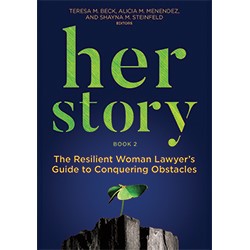The Beatles told us that “Money can’t buy me love.” Good advice, but law firms are trying to buy love anyway, hoping that huge bonuses will keep the associates they need. The tactic isn’t working. In the last 12 months, associate compensation has risen 10%, yet attrition is over 14%. So, what can law firms do to retain associates? I discuss one very easy step below.
The holidays are coming up fast, and year-end is a time when people contemplate their future plans. It’s the perfect time for my book, Retirement by Design. As the 100-year life becomes a reality for more and more people, we need to think about retirement in a completely new and different way. Below I explain why our increasing longevity makes creative retirement planning essential, and how my book can help you design a happy, meaningful and adaptable future.
In addition to the private consulting, programming, and presentations I’ve been doing about mentoring and retirement, I have done many webinars, programs, podcasts, and articles that are available to the public. As you scroll further down, you’ll find links to some of those resources.
My sincerest wishes to you all for a very happy Thanksgiving. These last two years have shown us how much we have to be thankful for, and this year should be especially meaningful as more of us are able to celebrate in person with family and friends. I hope your celebration is filled with…

